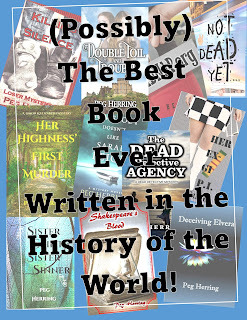Peg Herring's Blog, page 3
October 22, 2022
Step Two of Writing a Book
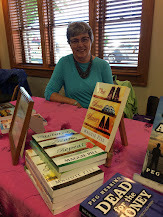
In the last post, I gave hints on writing your book. Now it's time to make sure your work appears in its best form, whether you plan to self-publish or submit to an agent. However you recorded your story, at this point it has to become a computer file. There are two reasons for that: first, modern publishing requires it, and second, it makes editing a whole lot easier.
You'll need to get to know your computer's editing aids, which can be frustrating but will pay off in the end. Things like FIND/REPLACE can save you hours of searching when you realize you changed the spelling of main character's name halfway through the story. When you get stuck, ask the internet. There's always a tutorial or a site where someone asked the same question you need answered.
There are different ways of going about the editing process, and individuals arrange them to their liking. I do several self-edits before anyone else sees the book. Sometimes I combine a few of the edits listed below, but here's what I want to know I've done right.
Timeline: Does the action happen logically over the period of time allotted to the story? Is the reader able to follow, or do I need to add phrases like "On Tuesday" or "The next afternoon"?
Sensory details: I tend to focus on plot the first time through, so I when I go back, I look for places I can deepen the reader's experience by providing detail. An editor once told me to make sure every page has at least one sensory experience OTHER THAN sight, meaning smell, touch, sound, and taste. Checking page by page for those other senses is a good way to get yourself used to including them automatically.
Character details: This is a good time to deepen the reader's understanding of the people they "meet" with backstory and additional information. There shouldn't be a lot of telling, so I think of ways to show the character's personality and mood, like with body movements or tone of voice.
Chapter flow: It might just be me, but I like chapter lengths to be somewhat uniform. If I find a chapter that's 32 pages long, I'll probably cut it in two or ever three, so its readability matches other chapters in the book.
I also drop the file into editing software at this point to see where the weaknesses in sentence construction, word usage, and punctuation lie. I use SmartEdit, but there are others.

Once I've done these edits, I send the book to my first reader, who reads the MS through and tells me what she notices overall. Does the story make sense? Are loose ends tied up? Is there something that isn't explained as well as it could be? Her reading begins the time away from the manuscript that I recommended in the last post. While she has the book, I do nothing with it. Once she's done, I note
her suggestions and return to the story with fresh eyes.
The next edit looks at the book overall, so here I have the computer read it aloud. That experience is good for noticing overuse of words and phrases, especially in the same paragraph or section. I hear awkward constructions and backward sentences (both usually fixable with a subordinate clause). By hearing the words, I notice unrealistic dialog. (Teen boys hardly ever use the word ubiquitous!)😄
When that's done, I submit the book to a "real" editor, meaning someone I don't know who gets paid to tell me how to improve the work. (I found some good ones on Upwork.com.) This edit is called a content or developmental or line edit (The lines between the tasks are blurry). This editor looks at the writing and suggests improvements in construction and storytelling.
The danger with contracted editors is that they might be afraid to criticize too much for fear you won't hire them again. That said, I think most editors understand that it's their job to pick the piece apart. I've only had one who didn't, and I should have paid more attention to the sample edit he did before we signed a contract. While it's deflating to get a MS back with page after page of suggestions, I can tell you that it's MUCH worse to pay out a bunch of bucks and get back a single line: "It's good." THAT'S the editor I would never hire again, because he gave me absolutely no help bettering my story.
Again, I leave the MS alone while the editor is at work on it. (This is where I work on publishing stuff, which I'll explain in the next installment.) With some writers, this edit involves multiple "passes" as editor and author hash out problem areas. Because I was for years an English teacher, editors have told me I'm a fairly "easy" edit, but I'm as prone as anyone else to leaving out details, making egregious mistakes (and reading right over them), and repeating myself. Et cetera, et cetera, et cetera. EVERYONE needs editing, and it should NOT be done by your cousin with an associate's degree in communications.

When the content editor finishes, I do a hammer-and-tongs edit, looking at everything and acting on the editor's suggestions when I feel they're merited. (I ignore them if they feel like the editor's personal opinions. It is, after all, my name on the front cover.) That leaves me with an almost-final manuscript, hopefully with a clear and compelling story told in a clear and compelling manner.
Then comes the copy editor. This person excels at the minutiae of writing: capitalization, spelling, hyphens, punctuation, and so on. She combs the MS for mistakes. She looks up writing standards as they exist today. (Mine, I confess, tend to come from the 1960s.) She gently informs me that I've misspelled pant leg...again.
When that edit is done, I enter the manuscript in my publication slots (Again, more on this next week.) I order author copies (Amazon will send you 5 for about $5 each. They have a band that says they are not the final version) and hand four of them to sharp-eyed readers in my local area. While they do their first reading, I do my last one with the fifth copy. When we're all done, I make any last corrections needed and finish the publication process.
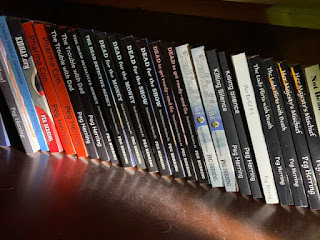
As you can guess by now, all this takes months. It should not be hurried, because any overzealous speed tends to end in mistakes and embarrassment when your book releases.
See? Editing is simple...😕
October 18, 2022
When You Want to Write a Book
If I had a nickel for every time someone said to me, "I'd like to write"...I'd have a lot of nickels.
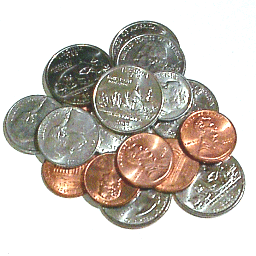
To help those people out a little, I thought I'd do a series of posts on the topic, similar to a presentation I used to do in live settings called WRITE, EDIT, PUBLISH.
WRITING
If you want to write a book, you have to find the time, energy, and perseverance to keep at it until the story is done. When you type "The End" (We actually don't do that, but the image is nice), it won't be perfect, but--at least in the world of fiction--a story needs to be finished before you can consider the next steps. Mostly, this means the BITCH principle is in effect: Butt In The Chair, Honey. Your method doesn't matter. I know authors who hand-write their first drafts, some who keyboard, some who dictate, and even one who uses some antique half-computer half-typewriting device she claims works best for her thought process. Whatever, just get your story on paper or file or whatever.

Some writers like to zip through the rough draft, ignoring any problems that arise. They put a few asterisks in to remind them to check facts or spelling, or to expand a description or a subplot. Other writers like to stop and find things out along the way, so they wander away from the manuscript to find out what Google has to say about POW camps in Michigan's Upper Peninsula during World War II (Raises hand.😏 ) I'm a bit of both. I like the rough draft to be the "bones" of the story, so I try to get that done early on, but often those side studies contribute to the plot, so I have to stop to make sure I understand how they'll fit.


"How long does it take to write a book?" I'm often asked, and there's no single answer. If you've got a day job or kids or lots of other responsibilities, it can take years. I was still teaching high school English when I wrote my first book, so my writing time was early morning, maybe an hour and a half before I had to get ready for my "real" job. When a story hits, I feel compelled to get it written, so my first drafts get done in a few months, whatever else is going on. (That doesn't mean they're all great. I have a file of "almost" stories that I'll probably never show to anyone.)

Here's my greatest piece of advice, and it's one of the hardest things for a writer to do. When you finish a story, PUT IT ASIDE for a while. Three weeks at minimum. Six weeks is better. I guarantee that when you go back to it, you'll ask yourself, "What was I thinking when I wrote this?"
That doesn't mean it's horrible (though it might be). What it means is that by standing back for a while, you're able to see the weaknesses. And seeing them is the first step toward fixing them.
 I've done tons of workshops and talked to hundreds of writers. Among them are always a few who rushed to publication and now wished they'd done differently. Yes, when you finish that rough draft, or even that second draft, you're excited for the world to see what you've accomplished. But here are some things to remember:
I've done tons of workshops and talked to hundreds of writers. Among them are always a few who rushed to publication and now wished they'd done differently. Yes, when you finish that rough draft, or even that second draft, you're excited for the world to see what you've accomplished. But here are some things to remember:*Sixth (or eighth or tenth) drafts are always better than first or second.
*Other writers are putting out excellent writing at a rate the world has never seen before.
*Agents, publishers, critics, and readers have their pick of hundreds of new stories each week. Yours needs to be WAY better than the others to stand a chance.
 So go ahead and write that book. Even if no one ever sees it but you and a few close friends, it will make you happy.
So go ahead and write that book. Even if no one ever sees it but you and a few close friends, it will make you happy.October 3, 2022
New Reader Site Hits the Target

Though I'm not sure how, I recently heard about Shepherd.com The people there are trying to change the way we find new books to read online, and I'm all for that.
When you type in "mystery" or "crime fiction" in most book-finding sites (like Amazon), you get a list of the 8 or 10 biggest-selling writers, like James Patterson, Michael Connelly, and Janet Evanovitch. The problem with that is that telling me Michael Connelly has a new book is useless. I've already bought it, read it, and passed it on to a friend. Also, some of those big names don't interest me, for a variety of reasons. I'd like new suggestions, new authors to try, but it's hard to choose, and the list goes on forever, with no hints as to which ones I'll really like.
Enter Shepherd.com. Right now, things are in the beginning stages, but the site categorizes books with a clever teaser: "The Best Books about..." You can search by title or author and along with the book/author you like, you'll get a list of related books. Or you can search by theme. (They have 975 WWII entries!) Authors and other book people recommend books they like on each theme, and there's a blurb about each recommendation and links to where you can buy it.
There's no cost for this. I don't see a downside to Shepherd.com for readers, though I'm afraid the founders will go crazy trying to keep up with so much good stuff.
As a writer, I was allowed to submit ONE of my books and connect it to others I've read on the same theme. I chose my newest one, SISTER SAINT, SISTER SINNER. To go with the feature on that book, I was asked to list 5 other sister-themed books I've read and enjoyed. They could be old or new, so I chose WE HAVE ALWAYS LIVED IN THE CASTLE for one. For a newer option on the theme of sisters, I suggested WHEN WE BELIEVED IN MERMAIDS. My entry goes live October 3rd, and here's a link to it https://shepherd.com/best-books/why-sisters-inspire-love-and-aggravation. I think readers will enjoy exploring the site, and it sounds like they plan to do much more to help us find books through themes we like to read about, like "gentlemen detectives" or "medieval adventure novels."
The only warning I have for you, the reader, is that you might get lost for hours, wandering through Shepherd.com and the great ideas for what to read next.
October 1, 2022
A Messy Writing Career
I'm usually pretty neat. I like my house in order. I keep a regular schedule. I pick up items dropped on the floor at Kohl's and rehang them so they won't get stepped on.
Neat is good.
But if you look at my writing career, you might think, "This woman has no sense of order at all!"
I started writing historical novels, using my own name.(I used Peg instead of Peggy because there's another author with that name.)

I got an agent, she found a publisher, and I was on my way...sort of. I had an idea for a paranormal mystery, and I met a publisher at a conference who liked it, so suddenly Peg Herring writes about Elizabeth I but ALSO about a detective who solves crimes from the afterlife.

In the meantime, I wrote a mystery about a homeless woman. My second publishers loved that one,

so now I had THREE series going. I also wrote a stand-alone mystery that I called "vintage," meaning it took place in the past but not that far back (the Vietnam era, which is considered historical now, but it wasn't then😕). Found a third publisher for that one.

Around that time, I started going to a lot of mystery cons, where I met authors who wrote cozy mysteries. They were having fun and getting recognition as well. I thought I'd like to try a cozy, but I was afraid my publishers wouldn't like me branching off into yet another sub-genre. I decided to try it on my own, though back then the idea of self-publishing made many in the writing community turn up their noses. I invented Maggie Pill, hired an editor and a cover artist, and released a cozy. I found I liked many things about publishing independently, which was good, because one of my publishers went bankrupt while the other two struggled to get recognition (and $$) for their authors.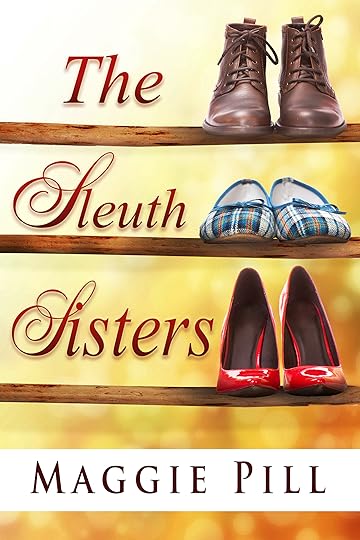
I hadn't intended to continue my work as Maggie until her book was suddenly in demand. I wrote a second Sleuth Sisters mystery and then another and another. It became clear that Maggie wasn't going anywhere. Someone asked when it would be out in print. Then someone else asked about audio. Suddenly I was learning all sorts of things about publishing (and it never stops!)
Eventually my Peg Herring books joined Maggie Pill's in the independent publishing world, but Peg has an odd conglomeration of mystery sub-genres. The books are sometimes funny,

sometimes serious.

Lately, they've crossed genres into suspense and "women's fiction," stories about women and their struggles, written mostly for women. Though the WF genre ranges from comedy to drama, Peg's WF books land on the serious end: friendships in the midst of crisis.

Sisters with gravely different views on life.

These days, I've sorted out my two writing personalities and reached a neater division. Readers of Maggie Pill's books know they'll get books that are funny and light, though I strongly believe that even a cozy mystery has to make sense and engage the reader in the puzzle. Peg's books have a wider range, so readers need to read the blurbs to see if the theme appeals to them.
See? I'm getting my writing life in order. I just hope I'm not hit with an idea for a horror romance!
September 4, 2022
What a Month!
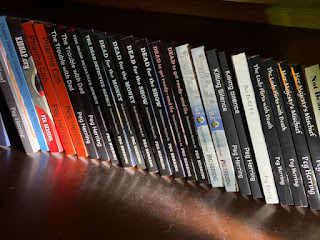
I was thrilled with the response to my giveaway in August, so thanks to all who requested a print book. I'm sorry if you didn't get one, but they went fast! I've been receiving emails from readers, some letting me know they arrived in the mail, and others letting me know the reader had finished the book and would be posting a review. One clever girl even put a pic of the book on Facebook, so I got some free advertising. To one and all, thank you!
The process was hectic for a while, since I wanted to get the books in the mail ASAP. The people at my little post office were patient and helpful. I combed local dollar stores to get enough bubble mailers of the correct size. There was time spent, and money. So what?
Writers often spend hundreds of dollars on advertising that goes out into a world of people who don't care much about their books. I chose to spend that money to send books to people who'd already noticed me, either here on the blog or by signing up for my newsletters. Maybe they tried a series they hadn't read before. Maybe they filled in a book they'd missed in the progression. Or maybe they tried a stand-alone to see what it was like.
I don't see any of that as a bad thing for me. I probably won't get the chance to do it again, but I'm always giving away e-books on one promo site or another, so ... stay tuned!
August 2, 2022
How About a FREE Print Book?
Readers love book deals, right?
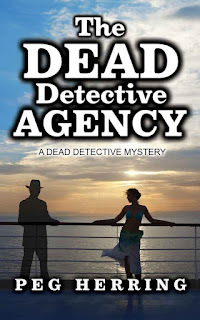
Here’s the situation: I have books I didn’t sell, largely due to COVID. I’m not interested in doing live book events anymore. (Too much travel, too many lonely hours in a bookstore.)
Therefore, I’m offering a deal, ONLY to loyal readers of my newsletters and blog.
Below is a list of what I have in my home inventory. Some are later books in a series, but none of them depend on an earlier book to understand either the characters or the mystery.
For the month of August, you can simply ask for a signed paperback copy of any book listed, and I’ll mail it to you FREE, for as long as the supply holds out.
To take advantage of the deal:
1. Look over the list and choose a book. (Numbers are limited, so don’t wait).
2. Send the title you’d like (Sorry, only one to a customer) and your mailing address to news@pegherring.com.

Each series is featured on its own page here on the blog, so you can check to see whether you’ve read a book/series yet and whether it’s something that would interest you. I’ll keep the list below updated, so you can check to see what’s still available.
While I don’t have print copies of all my books, they are always available on Amazon, B&N, and most other distributors. Any bookstore can order them. But this is probably the only chance you’ll ever get to receive a book by mail for free. It’s a great deal for you, or a nice Christmas gift for the person on your list who prefers “real” books.
As always, I appreciate reviews in any spot you like to post them, and I don’t mind if you pass the book along when you’ve finished it. Reviews and word of mouth are an author’s best friends.
Series Titles on My Bookshelf - ( ) indicates series sequence
Mercedes Mysteries Shakespeare’s Blood(#1)
The Dead Detective Mysteries Dead Detective Agency(#1)/Dead for the Money (#2)/Dead for the Show (#3)/Dead to Get Ready-and Go(#4)
Simon & Elizabeth (Tudor) Mysteries The Lady Flirts with Death (#3)/Her Majesty’s Mischief (#4)
Historical Romance/Macbeth Double Toil & Trouble (#2)
Kidnap Capers (Suspense) Kidnap.org (#1)/Pharma Con (#2)/Trouble with Dad (#3)
Standalones
’60s Paranormal Mystery Not Dead Yet…
Standalone Women’s Fiction Deceiving Elvera
Standalone Women’s Fiction Sister Saint, Sister Sinner (The copies I have contain a minor error that was corrected later.)
June 6, 2022
How Doth She Bigotry? Let Me Count the Ways

I left a conversation yesterday wondering how many ways one person can offend another in three minutes. I was outside sweeping my sidewalk when a woman I know slightly grabbed me by the arm. (Offense #1: Assuming she had to hold onto me to get me to listen.)
“I met that new woman,” she said. “She came over and offered me a bottle of wine.” (Offense #2: Referring to our neighbor as “that new woman.” She has a name. And she brought you wine.)
I said I’d met her too, and she seemed nice.
“You have to watch them, you know.” (Offense #3: Lumping people into a shapeless “them” category.)
I’m slow with bigots sometimes, because I can never believe they’re for real, but I was starting to get it. “Who is them?” I asked.
“Them! You know, the Asians or the Mexicans or whatever she is.” (Offense #4: I’m not explaining this one. If you don’t get it, you’re part of the problem.)
At that point, the best I could do was, “What?”
“Bob says they’re always looking for something. (Offense #5: Letting her husband tell her what to think. Obviously, we feather-headed females can’t figure things out for ourselves.)
“The women find some man who’ll marry them so they can come here," she went on, "and then after a few years they dump him.” (Offense #6: Deploring someone else's "crime" even though they gleefully report how they manipulate the tax system to their advantage. I quote the husband: “Hey, it’s probably legal.”)
Irritated, I give her a chance to soften her bigotry. “Are you sure they all do that?”
“Well, yeah. We knew a woman once who married an American and came here and then she divorced him once she got citizenship. (Offenses #7 & 8: Assuming you know why a married couple splits and generalizing it to every instance.)
That's when I took my arm back and walked away. Some people might have tried to reason with her, but seven decades on this earth has taught me that I’ll never win with someone that dumb, that mean, and that pleased with her own hypocrisy.
May 4, 2022
Everybody Lies
First, let me say I'm aware that I make things up for a living, so writing about lying is a little hypocritical. But I don't pretend that what I say is real, and that's the difference. Everyone in our society is bombarded with lies all day, every day. We're used to it. Sometimes we even enjoy it.
When analysts dig into why people believe lies, they find all sorts of explanations. Confirmation bias means we like things that reinforce what we already believe, so we accept lies that help with that. Many like leaders or organizations that tell them what to think, so they don't have to reason things out for themselves. If that leader lies, at least he's tough. If the organization runs to propaganda, at least it's working for "our" benefit. Another big reason we believe lies is fear. If we don't think we can cope with X, we like it when someone promises that X won't happen, even if we know in our hearts that it isn't true. Conversely, if the leader/organization says X will happen if he/it isn't in control, or if we're told the problem doesn't really exist, we want to believe that too. Life is less scary that way.
There are other theories about why we believe lies, but you get the idea. All sorts of psychological factors figure in. But here's an idea I haven't seen discussed before. What if we believe lies because we expect them? From the first day we can understand language, we're lied to. It's called advertising, and it's a billion-dollar industry. Advertising is expected and even respected as a necessary tool of business. Soft lies and hard lies, ads are built on convincing us something is true that probably isn't.
You're a consumer. It's your job to figure out what they're trying to do to your head.
Recognize the (sometimes subtle) messaging. "Is it true blonds have more fun?" a slogan from the olden days, played on women's desire to be attractive. Ads hint that you'll have more friends or be more admired if you buy this car or drink this vodka. The reverse is also true. They hint that NOT using a product will devastate your social life: bad breath, stinky pits, frizzy hair...the list of social "sins" is endless, and we rush out to buy products to "protect" us from ostracism.
Look past the hype. How likely is it that Pillow X is the best in the world? How much do you really care about which beer you drink? Do you really need that phone plan with bells and whistles you'll probably never use?
Note the background imaging. It's no mistake that while the drug company spokesperson is reading you that looooooong list of possible side effects, there are people on the screen doing fun things with family and friends in peaceful, scenic settings. It's called distraction.
Reject endorsements. Advertisers can always find someone who'll endorse a product if the money's right. I get very angry when celebrities push products, and my husband gets tired of me shouting "Whore!" at the TV. How much would you bet that Actor X doesn't know jack about reverse mortgages? And if his old car broke down, wouldn't Rapper Y simply get a new, flashier one?
Note the wording. "Nine out of ten doctors surveyed would recommend this product." How many doctors actually answered their survey? Were they given some incentive to respond positively? How was the question worded? As Mark Twain said, "Gather your statistics, and then distort them as much as you please."
If it sounds too good to be true, it is. Recently, a friend slapped her midsection and told me, "I gotta get rid of this, so I ordered some pills I saw on TV. You take one every night, and they dissolve your belly fat." Sometimes we want to believe so badly, it takes almost no effort to persuade us. But take a moment before you order the exercise machine the people on the screen seem to be enjoying so darned much. Picture yourself using it for even half an hour every day, for months. Is that ever going to happen? (Hint: For the vast majority of us, the answer is no.)
What does all this have to do with lies we're told outside the world of advertising? All our lives, we've been bombarded with advertising that lies to us, so we expect lies in other spheres. I hear people dismiss political discourse with, "They're all liars." It's become an excuse to turn our backs and not listen, not analyze, not vote. But in the face of politicians' lies (sometimes attributable to hyperbole or exaggeration or even wishful thinking), our job is to dissect what's said and separate what's true from what's false, what's possible from what's improbable.
We've all fallen prey to advertisers' lies and bought products that didn't deliver. If we became wiser about how we spend our money, that's a good result. It follows then, that if everybody in our political system lies, our job is to look past the hype and find who has real value and who is all smoke and mirrors.
You're a citizen. It's your job to figure out what they're trying to do to your head.
March 31, 2022
A First-World Issue, Funny...Maybe
I have really short little fingers. I mean, I know that "little finger" should alert one to the fact that it won't be much, but mine are way shorter than the others, barely passing the middle joint of Finger #4.
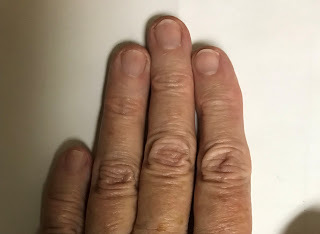
Why is this a problem? Because my new keyboard, which is ergonomic and supposedly hand-healthy, requires a strong push to work the keys on the top row. I learned typing in a real class, where every day we set our hands on the Home Row and learned to keep them there. That means that my right-hand little finger should operate the "Back" key without much change in hand position. Sadly, it isn't up to the task, and it really slows my typing when it takes two or even three tries to erase a mistake.
Will this bring about the end of Western Civilization? No. Could I buy a more compact keyboard? Probably. I just thought it was kind of funny that as the world rages and ruins around me, something so small can be so irritating .
March 23, 2022
Have You Missed a Book in a Series?
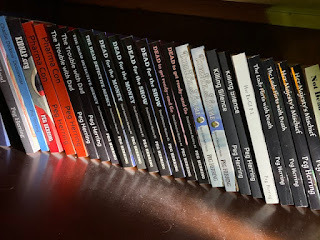
A word I hear sometimes when people talk about me is "prolific." Yes, I do have a lot of books out, and that can get confusing. Did you miss a book? Maybe a whole series?
To help readers decide if they're up to date, I've devised a list a la Seinfeld, using "The one where..."
THE LOSER MYSTERIES
Killing Silence- The one where we meet Loser, a woman who lives on the streets of Richmond, ignoring just about everyone until she feels compelled to help a little girl and her dad.
Killing Memories- The one where Loser goes home to West Virginia, intending to live alone, but finds connections to people who need her, especially her crime-solving expertise.
Killing Despair- The one where Loser goes back to Richmond to face her past and learn what exactly happened the night her husband died.
THE KIDNAP CAPERS
KIDNAP(.)org-The one where Robin becomes a criminal by helping her neighbor right a wrong--and decides she likes putting cheaters in their place.
Pharma Con -The one where Robin and the gang take on a Big Pharma scoundrel on his oh-so-secure estate.
The Trouble with Dad-The one where Robin has to deal with her con man dad while he's pursued by some very nasty people he conned.
MACBETH'S NIECES
Macbeth's Niece-The one where Tessa is captured by an English spy and taken from her uncle's castle against her will.
Double Toil & Trouble -The one where Tessa's twin sisters have their own adventures, one in the Highlands and one in France with William the Conqueror as her host.
THE SIMON AND ELIZABETH MYSTERIES
Her Highness' First Murder-The one where Simon meets Princess Elizabeth, and they try to discover who is killing and beheading beautiful young women.
Poison, Your Grace-The one where Elizabeth asks Simon to help her protect her brother Edward and prove she isn't trying to poison him.
The Lady Flirts with Death-The one where Elizabeth is locked in the Tower of London and Simon does his best to keep her alive, as he also does for his old friend Peto the Pope.
Her Majesty's Mischief -The one where Elizabeth sends Simon to Scotland to give her an objective opinion of Mary, Queen of Scots.
THE MERCEDES MAXWELL MYSTERIES
Shakespeare's Blood-The one where Mercedes is chased all over the UK by a madman looking for Spanish treasure.
Charlie Dickens' Documents -The one where Colm goes missing, and Mercedes and her oddball helpers go looking for him in Scotland.
THE DEAD DETECTIVE MYSTERIES
The Dead Detective Agency-The one where Tori finds herself on The Ship, learns that she was murdered, and insists that Seamus, her dead detective, must take her with him as he investigates.
Dead for the Money-The one where Seamus investigates the murder of a wealthy man and finds a lonely young girl who believes she's got nobody now that he's dead.
Dead for the Show-The one where Seamus goes to a Toronto theater, hoping to prove to a stubborn young woman that she really is dead, and finds that her sister is in great danger.
Dead to Get Ready--and Go-The one where Seamus finally investigates his own murder, facing the fact that his killer might have been the person he loved most in the world.

